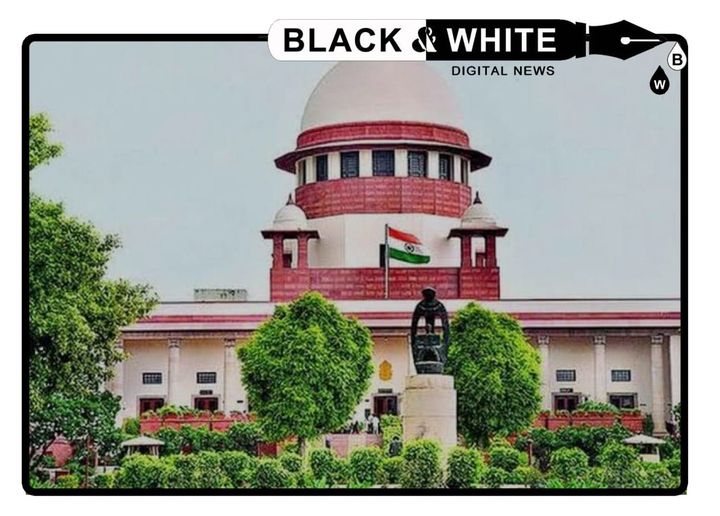Supreme Court Grants Retrospective Bail Relief to First-Time Offenders Under BNSS Section 479
Landmark Ruling Aims to Alleviate Overcrowded Prisons by Extending Bail Provisions to Pre-July 2024 Cases
||Black and White Digital News ||
||Parvinder Singh August 25, 2024||
In a significant move aimed at reducing the chronic overcrowding in Indian prisons, the Supreme Court on Friday ruled that first-time offenders who have completed one-third or more of their maximum possible sentence as undertrials shall be entitled to bail under Section 479 of the Bharatiya Nagarik Suraksha Sanhita (BNSS). This decision marks a crucial step in addressing the pressing issue of prison overcrowding by extending the benefits of the newly enacted BNSS to cases predating its enforcement.
The ruling came from a bench comprising Justices Hima Kohli and Sandeep Mehta while hearing a Public Interest Litigation (PIL) concerning the overcrowding of prisons across the country. The bench’s decision means that the provisions of Section 479, which took effect on July 1, 2024, will now apply retrospectively, offering relief to undertrials who have been in detention for a significant portion of their potential maximum sentences.
Context and Implications:
The Bharatiya Nagarik Suraksha Sanhita, which replaced the Criminal Procedure Code, introduced several reforms aimed at enhancing the criminal justice system. One of its key provisions under Section 479 provides that undertrials are entitled to bail if they have completed half of the maximum sentence prescribed for the offence they are charged with. For first-time offenders, this threshold is set at one-third of the maximum sentence.
Friday’s order extends this benefit to cases that existed before the BNSS came into force, offering a lifeline to many undertrials who have been languishing in prison for extended periods. The Supreme Court’s decision is expected to impact thousands of undertrials across the country, potentially easing the burden on the prison system.
Government’s Stance and Judicial Direction:
The retrospective application of Section 479 received backing from the Central Government. Additional Solicitor General Aishwarya Bhati, representing the Union of India, expressed the government’s support, stating, “I am happy to report that the Union of India is also of the view that the provision has to be given full effect to…It has to apply to any undertrial who has completed up to one-third of the imprisonment and must be considered accordingly.”
The bench, acknowledging the importance of swift action, directed jail superintendents to expedite the processing of eligible applications through the courts. The court emphasized that this process should be completed at the earliest, ideally within three months, to ensure that those eligible for bail under this provision can be released promptly.
Expert Opinions and Future Outlook:
Senior Advocate Gaurav Aggarwal, who served as amicus curiae in the case, had advocated for the retrospective application of the BNSS provision, arguing that it would be instrumental in tackling the issue of overcrowded prisons. The Supreme Court’s acceptance of this argument reflects a broader judicial acknowledgment of the need for reforms that address systemic issues within the criminal justice system.
The ruling is anticipated to have a far-reaching impact, not only by reducing the number of inmates in prisons but also by setting a precedent for the application of beneficial legal provisions retrospectively in the interest of justice.
This development is a landmark in the ongoing efforts to reform India’s criminal justice system and alleviate the humanitarian crisis posed by overcrowded prisons. The retrospective application of Section 479 under the BNSS is expected to provide immediate relief to many and potentially transform the landscape of pre-trial detention in the country.



